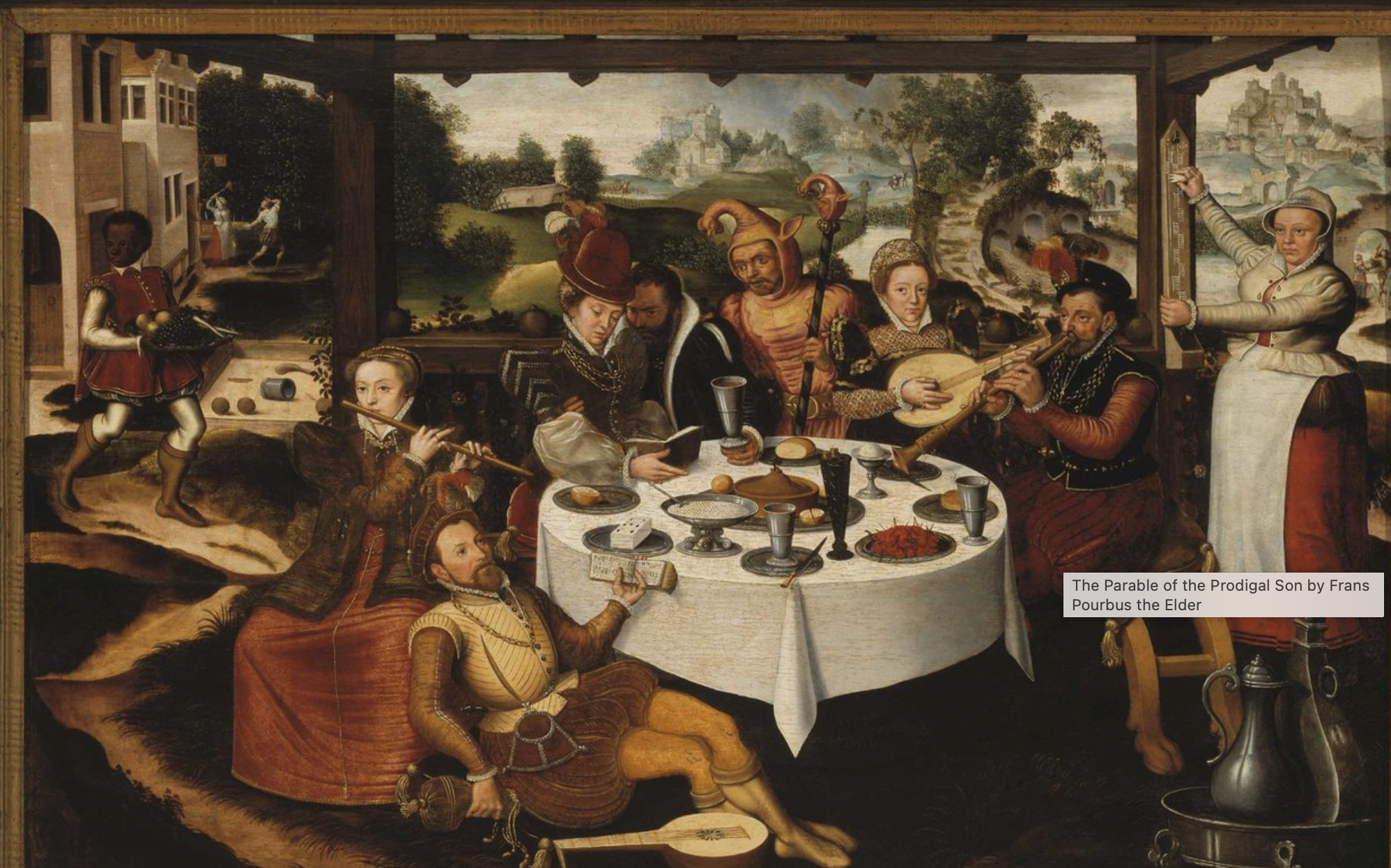
This week’s passage reflects upon that tried and trusted story of the Prodigal Son. (Prodigal meaning to squander)
The first few verses (Luke 15:1-3) gives us the context for telling of this story. Let’s be clear that this was a story which explained some moral lesson, it wasn’t a rendition of what actually happened to a specific person. We have tax collectors and sinners (boo!) listening to Jesus. So, Jesus is seemingly content to sit with these folk that others, high in authority, might well sneer (aka Pharisees). This verse speaks volumes. Jesus wasn’t seemingly berating, hammering his beliefs so that must believe, but explaining his thoughts.
Sinners can get a poor review. It means “those who violate community welfare for their own gain” (Amy Jill Levine) But all can receive forgiveness. The author then continues to mention a few other parables : 100 sheep, a few lost coins etc. The Lectionary reading omits mention of them.
The lost sheep parable describes the fault of the herdsman as they lost the sheep. It’s not the sheep’s fault. The shepherd is the one who has to do the heavy lifting – literally – here, and the result? a party. Neither does the sheep repent, nor the Shepherd forgive. The lost coins, not down the back of the proverbial settee or sofa, total 10; not the 100 mentioned with the sheep. Here, the coins seemingly repent, clearly denoting humour within the story. But the woman doesn’t repent.
Jesus tells them another parable (Luke 15:11-32). Recall a parable is laying alongside what is happening today something that tells a story. Think parallel. It is throwing something side by side, a metaphorical transferring of information.
You know the actors in this story: the young lad, the rich father, the older son, and…a silent mother? What’s evident is we have two sons. Adam/Cain; Abraham/Isaac; Jacob/Isau?
The young lad wants to high life and goes off to enjoy life in all its glory. He finds that that life isn’t what it all seems to be, meets pigs, and turns back towards home. The father, seeing him on the horizon, is desperate to welcome him back. The young lad is given some shoes (only the owner’s family wore shoes in the home), the fatted calf is suddenly killed and cooked, and the older son is not all pleased with this extravagance and possibly expense. No words from the mother…
In my time in ministry training, the one book I loved was Brain Maclaren’s ‘Why did Jesus, Moses, the Buddha, and Mohammed cross the Road’: “As we tell it, the story climaxes when a runaway boy returns home feeling disgraced, hoping to re-enter the household as a slave, and the father graciously receives him as a son. But the real climax, I propose, comes later, when the father slips out of the welcome-home party to speak with the alienated older brother outside.” We never seem to find out whether the two sons ever get talk together
In all three parables, we don’t have repentance but a clear message that all should be counted. Whether they be sheep on the hillside, coins in your pocket, and family wherever they might be.
So, where do we fit in with this particular parable? Are we (or have been) the younger son? Are we the older son whose frustrations boil over when others seem to get the attention that (we don’t think ) they don’t deserve? Or are we the grumbling Pharisees, peering into the group listening to Jesus, and really wishing that we were just taking a perch and trying to explore more about what he is talking about?
Luke 15:23 “let us eat and celebrate”. We are, the Pharisees, the gentiles, the Jews, the family (older brother) are all invited. Would you eat there as well?
